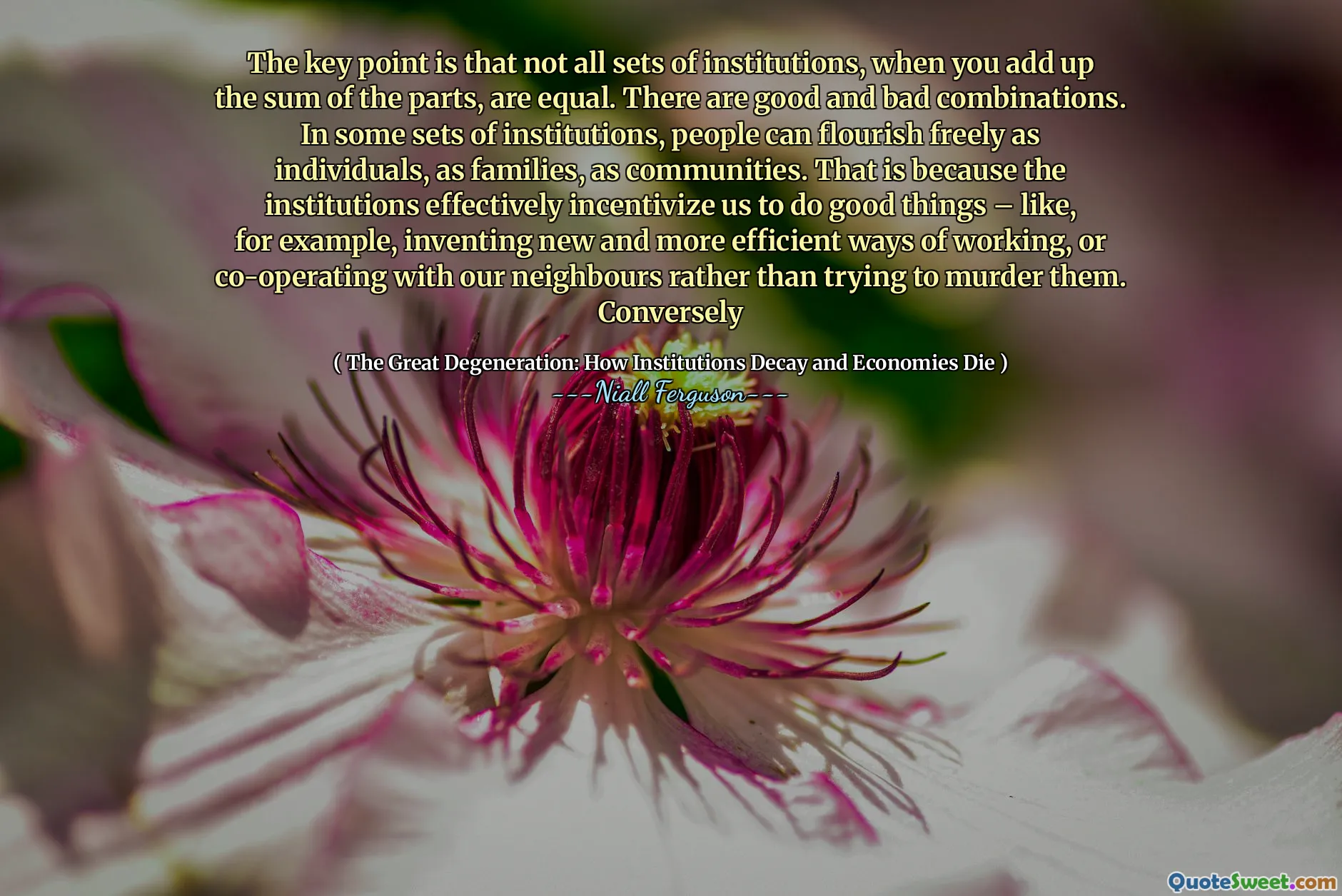
The key point is that not all sets of institutions, when you add up the sum of the parts, are equal. There are good and bad combinations. In some sets of institutions, people can flourish freely as individuals, as families, as communities. That is because the institutions effectively incentivize us to do good things – like, for example, inventing new and more efficient ways of working, or co-operating with our neighbours rather than trying to murder them. Conversely
The core argument of Niall Ferguson's "The Great Degeneration" is that not all institutional frameworks provide the same benefits. Some institutions foster environments where individuals and communities can thrive, promoting innovation and cooperation. These positive combinations motivate people to engage in productive behaviors, enhancing societal welfare.
In contrast, certain institutional arrangements can lead to detrimental outcomes, discouraging constructive actions and exacerbating social discord. Ferguson emphasizes the importance of understanding the quality and implications of different institutional structures, as they fundamentally shape economic and social dynamics.











